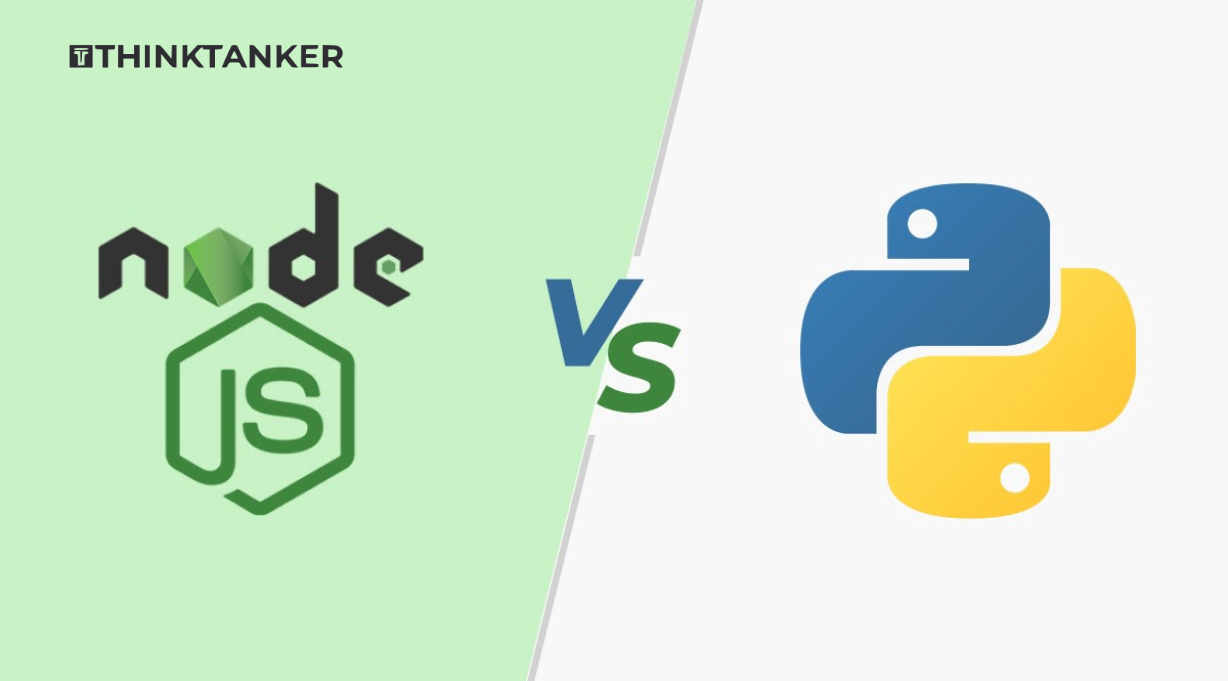Golang Vs. Node.js – Which is Best in 2021?

Node.js and Golang are two programming languages that are very popular for their speed and scalability. Node.js is the most popular JavaScript framework, and Golang is a compiled language. This article will explore the nuanced differences between Node.js and Golang and the circumstances in which one language might be preferable to the other.
What is Golang?
Golang is a programming language that Brendan Eich created in 2008. However, it has received the most attention from developers, and several open-source projects have picked it up. The way that Golang differs from other programming languages is its object-oriented approach, which allows for a higher degree of concurrency.
Golang also employs concurrency well and offers features such as slices, channels, and map-reduce. It also provides strongly typed constructs such as records, functions, and interfaces to ensure that only safe and useful constructs are created and implemented.
What is Node.js?
Node.js is a popular server-side application framework written in JavaScript. It is an open-source project which the Node.js Foundation maintains. Node.js is typically used for API backends and other small end-user front-end applications.
It can run on almost any platform with a 64-bit Linux or Windows OS. The result is a very fast and scalable server backend for any development purpose. The fundamentals of Node.js are simple, which makes it easy to learn.
Golang Vs. Node.js comparison factors
Golang and Node.js are both lightweight languages. They both run on the JVM. They are both designed to be interactive programming languages. They are both designed to be readable by humans. While Golang and Node.js have a lot in common, there are some differences between the two.
Golang’s emphasis is on code reuse and optimization, while Node.js emphasizes performance and robustness. Node.js has many libraries, while Golang does not. To implement and use the robustness of nodejs you should hire nodejs developers.
Performance factors
In their favor, Golang does not suffer from the drawbacks of JavaScript, including writing custom object-oriented functionality. Golang does have its quirks, but you should be prepared to learn them. This means that you will need to be extremely conscious about performance.
Simultaneously, as a web developer, you should also have a bias towards JavaScript as a language. As more and more developers are making the switch to Node.js, the primary fear I hear from Node.js advocates is that more developers will be moving to Golang. This is primarily due to the speed of Node.js.
Golang has low memory overhead, so it tends to benefit when run on resource-constrained systems. In my experience, Golang can be found running in a server-side environment more often than not.
Maturity
Golang is now a very mature programming language, and many well-known projects use it. For example, the run has been adopted by the golang.org community, and gophers (Go compiler for C) is a good starting point for building compilers. Node.js is also mature at the other end.
However, its popularity is largely driven by web applications, which run on server hardware. Golang can be used to build server-side applications with minimal hassle. Most projects today build Node.js apps by default.
Error Handling
One of the biggest advantages of Node.js is its error handling. Golang does not have built-in error handling but does have a set of built-in error types and, as I mentioned earlier, a fancy solution for catching those errors. It would be great if Node.js made the catch-all methods pass() and automatically handled the errors. Unfortunately, they do not.
In both cases, the error handling (catch-all) could be drastically improved. Golang’s solution is a bit easier, but Node.js’ construct is still well designed. Another big difference in how Golang handles error handling is the simple fact that it does not have a set of built-in types. This is important because you would typically have a couple of different error types for different kinds of problems.
Scalability
Node.js is an open-source server-side web application framework that has become the tool of choice for many developers building web applications. Node.js is similar to Ruby on Rails or Django and is very fast and provides scalability in large-scale applications. Golang is written in a more compiled style, making it more lightweight, faster, and easier to scale and maintain.
Golang is also developed by Google, who are experts at scale. Node.js is designed to run as a single process, while Golang is designed to run multiple processes. This is much better for multiple processing servers and the ease of scaling. Golang runs on a wide range of platforms, which is great for large-scale deployments and can be a great alternative for large production applications.
Learning curve
While both languages have similar language-specific features, some nuances might determine which language is more appropriate for you. If you’re already comfortable with other JavaScript programming languages like jQuery, you can immediately start to write production-ready code on Node.js.
Golang has fewer language features than Node.js. Since you have to compile the language, it requires less work to work with, and the syntax is more intuitive and friendly.
Conclusion
It is difficult to declare one as the winner in this Node JS vs Golang comparison, as both have their pros and cons. Golang has been proven to be a great choice for performance and simplicity, while Node.JS is better for the web’s front-end development. Many developers will have to choose between Golang and NodeJS for their project. The choice is difficult, but you should take your skill level, personal preferences, and the project into account. Golang is written in a more compiled style, making it more lightweight, faster, and easier to scale and maintain. If you want to build scalable product then you should hire nodejs development company.




